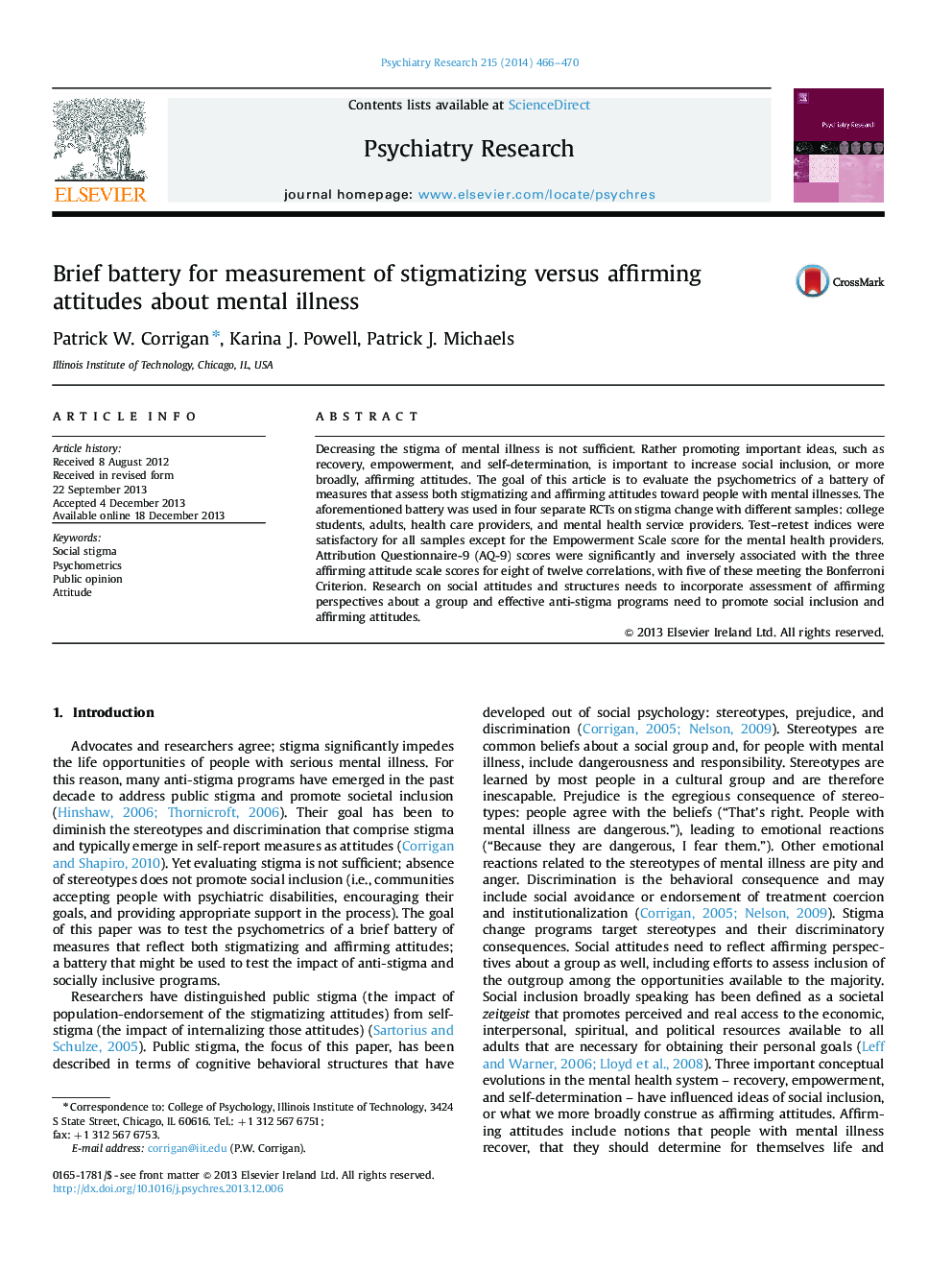| Article ID | Journal | Published Year | Pages | File Type |
|---|---|---|---|---|
| 333075 | Psychiatry Research | 2014 | 5 Pages |
Decreasing the stigma of mental illness is not sufficient. Rather promoting important ideas, such as recovery, empowerment, and self-determination, is important to increase social inclusion, or more broadly, affirming attitudes. The goal of this article is to evaluate the psychometrics of a battery of measures that assess both stigmatizing and affirming attitudes toward people with mental illnesses. The aforementioned battery was used in four separate RCTs on stigma change with different samples: college students, adults, health care providers, and mental health service providers. Test–retest indices were satisfactory for all samples except for the Empowerment Scale score for the mental health providers. Attribution Questionnaire-9 (AQ-9) scores were significantly and inversely associated with the three affirming attitude scale scores for eight of twelve correlations, with five of these meeting the Bonferroni Criterion. Research on social attitudes and structures needs to incorporate assessment of affirming perspectives about a group and effective anti-stigma programs need to promote social inclusion and affirming attitudes.
